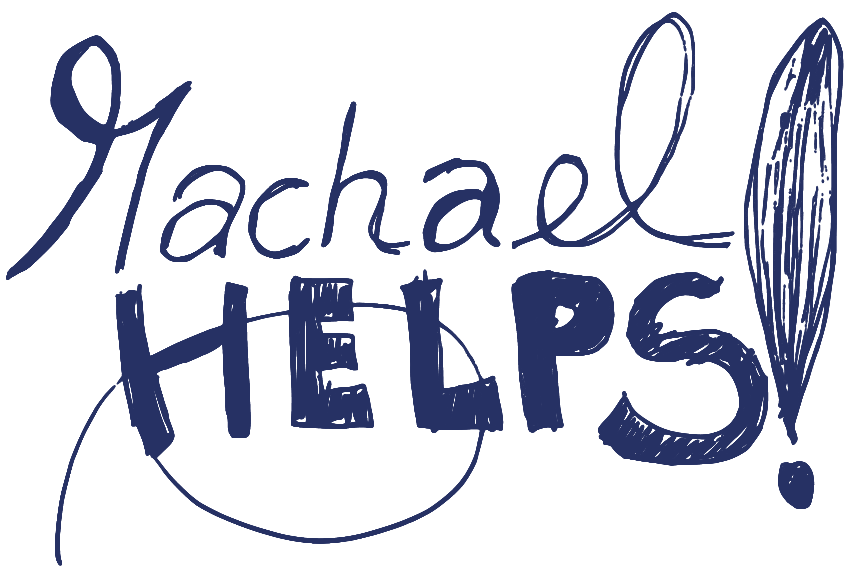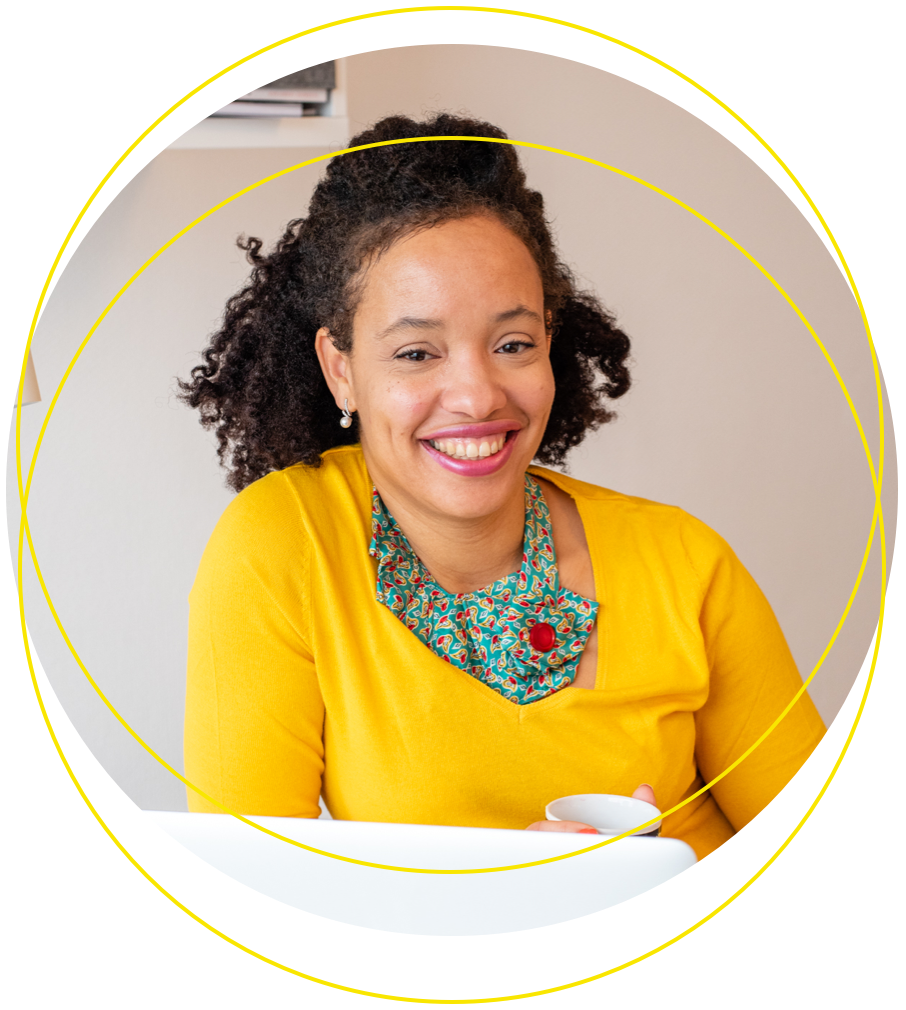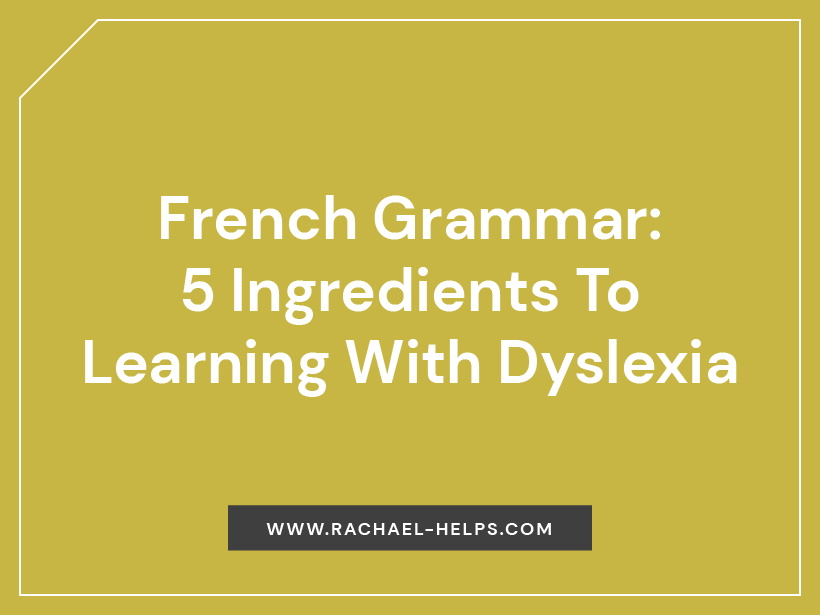Pulling Back The Curtains And Showing You How To Learn French Grammar With Dyslexia
Learning French? | 6 Commentaires | ✏️ 6 Comments on Pulling Back The Curtains And Showing You How To Learn French Grammar With Dyslexia ⤵️
A reader writes:
My daughter is learning French in school (she is 15) and I find that I would love to be able to communicate with her. I am 52, with dyslexia and have dyscalculia (dyslexic with math). However, I am driven and want to learn, but I stopped because I have difficulty with grammar. I have the Duolingo app, and I am going to try your children’s audiobooks. Any tips with learning the grammar?
Answer:
I applaud you for wanting to help your daughter and at the same time having the drive to learn a second language at the age of 52.
I love this quote from Tom Hanks in A League of Their Own:
“It’s supposed to be hard. If it were easy, everyone would do it.”
And, boy oh boy, it’s hard when you have dyslexia and dyscalculia. But while having dyslexia can make it harder to learn another language, it’s not impossible.
Let’s face it we learn differently (I’m dyslexic too).
I would approach this issue by working out what aspects of dyslexia are causing you the most significant problems. Everyone has different symptoms, and it will depend a lot on your individual situation.
For you, what parts of grammar are difficult?
When you figure this out, you can use proper tools and methods to work around them.
Like you I had problems with grammar, it was because I didn’t know grammar in my own language, English. I wasn’t taught grammar in middle school nor high school. Every grade I passed, it was assumed that we knew the different parts of speech and their functions. For the life of me, I cannot remember writing a paper or essay in middle school nor high school. Many people slip through the educational system cracks and never correctly learn English grammar. I learned this through an online course on English Grammar and Style in an interview with David Crystal, a linguist. There were two generations where people had no grammar training, and these people later went on to become teachers. So, from 1960 to 1990 grammar was absent from most classrooms. I finished High School in 1994.
You will face the same problems you had when you were learning to read and write in English, and in other languages. To successfully learn a second language you have to understand basic grammar in your own language (your mother tongue). So if this is your case, I would advise you to take a multisensory grammar lesson that is geared towards dyslexic kids. I used the writing beach by Nessy. It’s a good start to re-learning the basics in English, with ten easy lessons on sentence structure, grammar, punctuation, and strategies for students with dyslexia.
My four ingredients for learning another language with dyslexia.
We need four ingredients to learn another language: drive (self-motivation), tools (methods), determination and affirmation (your reminder/kick in the butt).
When you have all your four ingredients correctly in place, and one fails the other ones kick in.
I have my own affirmation that I tell myself just to kick-start my drive and determination so that I will achieve my language goal.
“Get caught up in your creativity Rachael,” I tell myself.
A person with learning disabilities or difficulties has to really get creative to find the proper tools and methods to learn French. You have to test out the different methods to find the one or two that may help you overcome your different symptoms. I took the bull by the horns by researching and testing different techniques on myself. I was my own little guinea pig. I found out I would always remember verbs and vocabulary through a multisensory approach, sequential methods, stories, and music.
Here are some tools I use for learning grammar in French.
Children’s Story Books
I can’t repeat enough how learning a language with stories (also backed by scientific research) is excellent for self-study. It engages the entire brain and activates several brain areas that conventional learning techniques cannot reach. Vocabulary is often associated with a picture and simple grammatical structures. According to research, you will acquire more vocabulary and grammar if you engage in meaningful ways with the language you’re trying to learn. There are also audio children’s story books, where you can follow along and listen to the CD at the same time. Psst… I’m also a fan of children’s books, I love reading them in English too.
The apps on my cell phone.
Merriam Webster app on my cell phone
If I don’t know the meaning of a word in English, how will I be able to use the equivalent in French? I use this app to check the meaning of words first in my native language before I go on to learn new vocabulary in French.
I use this app when I come across new verbs in French or if I forget how to conjugate verbs. This app is not for a beginner (with a level of A1 to A2). The definitions are written in French.
Duolingo (not on my phone)
I do not use this app. I agree with Steven Kaufman on Duolingo, it’s a game approach but is not good for people with dyslexia because you’re docked for spelling errors, and it is not an efficient approach to learning a language. Also, my French hubby uses it for English, and we found errors in it.
J’accorde
I use J’accorde, it’s an app for French kids to learn French grammar (it’s all in French). I love, love, love, LOVE this app. Did I say I LOVE this app?
Color cue card system (also called index cards, flash cards)
I use color cue cards to assign the nine-parts of speech to a single color. So verbs would be on a red colored card, while nouns are on the blue colored card. When I learn new words, I know what group, i.e., verb, interjection, pronouns, nouns, etc.. it belongs to. You can also use this as a game to form sentences.
In conclusion, the key takeaways are:
- Figure out what works for you (your own methodology).
- Use affirmation to help kick-start your drive and determination.
- Test out different learning methods, there is no one right way. There is only your way.
#JustASK advice column, launched in 2002 on my YouTube channel, is written from an honest, direct and down-to-earth point of view. From navigating between different cultures, traveling, learning languages, getting your ducks in a row, to growing personally and professionally abroad.
Want to submit a question of your own?
Click here to submit your question. Also, I never, ever print names; all questions will be kept anonymous.
Thank you for reading and adding your perspective to the conversation!
See ya in the comments down below.
Remember to LIVE, LOVE & design your life the way you want it to be.
Talk to you soon,
Rachael HELPS!


